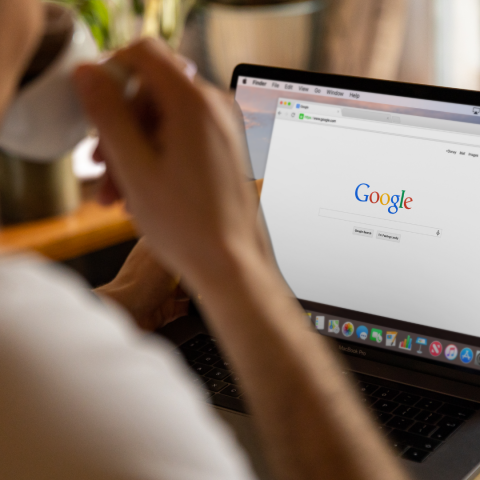The number of small businesses which have increased their digital capabilities has risen from 45% in 2014 to 79% in 2021. Since the pandemic businesses have needed to adapt and push their online presence more than ever to grow their businesses.
Advertising your business online will enable you to grow your online presence, get you seen by a much wider audience, and if you do it right, help you convert leads into business. According to the UK Business Digital Index, 17% of small businesses have seen an increase in sales due to their online presence; 27% of these businesses are making sales through online channels.
So how do you get started? Superfast Business Wales will show you five ways you can effectively market your small business online.
Get blogging
Writing a blog doesn’t mean you suddenly have to become a leading authority on something outside of your business area. For instance, no one would expect you to write a blog about cars if you’re an online clothing retailer. The point is, only you know your field of business, and this is something you can feel confident enough to blog about with confidence.
What is a blog? In simple terms, it’s just an online column or diary. You can either host your blog on your own website or use a free platform such as WordPress and link it back to your website. The trick is to keep it regularly updated with engaging content which will appeal to your target audience. Not only will you start to position yourself as an industry expert, but you will also increase the chance of your website being found in search engines. Search engines love new high-quality content and regular posts will keep your site looking fresh and more prominent in search rankings.
These days, more businesses are participating in Vlogging - which is a video-based version of a blog entry. This is a particularly engaging way of getting your knowledge across to an audience, and them seeing the face of the business behind the words. Vlogging has become particularly popular on social media platforms such as TikTok.
Email marketing
If you’re wondering whether anyone still uses email marketing, they certainly do. Email marketing has the highest return on investment for small businesses. It is an effective method of communicating with your customers, as usually many of your audience will have already interacted with your business in some form. Regarding GDPR, data can only be obtained and utilised with consent from the user. This can help you strengthen relationships with those you know are interested, build your brand, and generate sales. Using email also enables you to reach your customers on any device.
Mailchimp has a free option as well as premium options for optimal usage. The free version allows up to 2,000 contacts, 1 audience group, plus many more options you need to get started whilst you build up your database. Going forwards, it then offers flexible payment options for specific tools you may need. Before you start, make sure you are compliant with the new General Data Protection Regulations (GDPR) – find out more.
Pay Per Click (PPC)
Google dominates the world of search engines which makes Google Ads the biggest ad platform in the UK for PPC marketing. Google Ads lets you target customers by keywords, location, demographics, and behaviour. Depending on the type of campaign you choose your ads could pop up in Google search results, on Google apps and partner sites, and on third party websites visited by your target market via the Google Display Network.
There is a cost involved but Ads lets you set a daily budget to keep control of your costs, and there’s no minimum spend required. If you’re new to Ads, Google has a set-up guide to help you get started. Bing Ads works in a similar way but may be a cheaper option as it owns less of the search engine market. Both platforms allow you to monitor and measure results so you can keep track of what works and what doesn’t.
Facebook Ads
Facebook is still the king of social media and represents a great advertising space for small businesses. Facebook Ads allow you to reach specific audiences based on their location, demographics, interests, behaviour, and connections. This means you can target people which are likely to be interested in your product or service regardless of whether they’ve searched for you.
Facebook Ads can be a really cost-effective way of reaching a huge audience. Just ask Anglesey-based luxury glamping business Wonderfully Wild. Facebook Ads drove expansion for the business, and they got some of their best results from spending just £1 per day for 90 days on their campaigns. As with Google Ads, Facebook gives you access to analytics so you can measure how well your ads are performing and allocate spend accordingly.
Google My Business
Over half of all of Google searches are now done via mobile with one-third of these related to location. Surprisingly though, many businesses haven’t added or claimed their local business listing on Google. Why do you need one? In short, to make it easier for customers to find you instead of your competitors.
Google My Business is a free tool which enables you to create an online business profile: including contact details, opening hours, website URL, description, and products and services. Your company will consistently show up in search results on any device and be visible across multiple Google platforms. Customers can leave reviews of your business as well, which of course is another factor people will look for when deciding on a suitable business to provide products/services to them.
Google My Business also allows you to manage your listing, interact with customers, follow reviews, and monitor your customers’ behaviour and actions. It is a good idea to treat your Google business page like you do your social platforms by posting regular updates and content to show how active you are as a business, as well as keeping your opening times etc., up to date around various holiday seasons.



